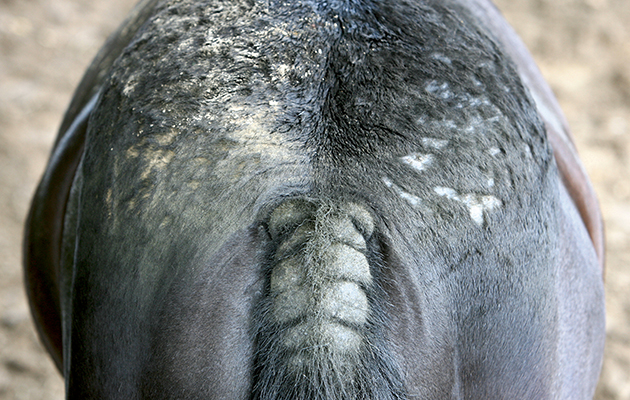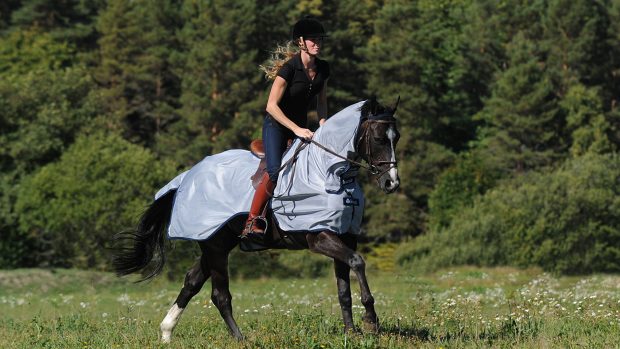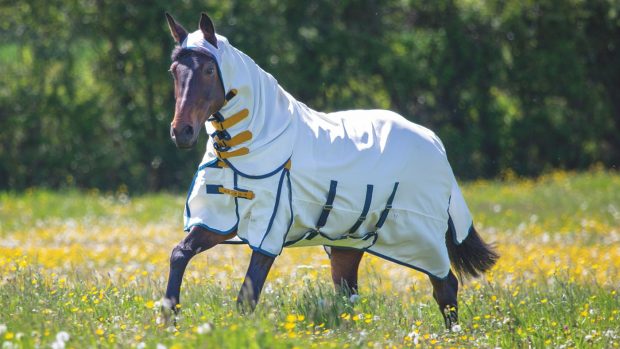A new vaccine for sweet itch has been described as “the first successful immunotherapeutic approach targeting a chronic disease in horses”.
The insect bite hypersensitivity vaccine, developed by a team in Switzerland, is the first to target the eosiniphils response — the white blood cells that become involved at the site of an allergic reaction.
Trials of the new vaccine, in 34 privately-owned Icelandic ponies, showed a significant reduction in signs, giving hope to those trying to manage this chronic seasonal ailment.
Sweet itch is the most common dermatological condition in equines, affecting up to 10% of horses worldwide. Sufferers experience an immune response to the saliva of biting midges, which causes inflammation, severe itching and hairless, weeping lesions that can turn ulcerative.
The innovative treatment blocks equine IL-5 (eIL-5), a protein which acts as the “master regulator” of eosinophils, and was considered to be a “safe” approach, which was “well tolerated” in the test horses.
The study was led by Antonia Fettelschoss-Gabriel, a researcher in the University Hospital Zurich Department of Dermatology, and was conducted as a double-blind, placebo-controlled randomised trial.
The horses received three subcutaneous injections at monthly intervals, followed by a booster. Lesion scores were then compared to those that had been recorded monthly in the pre-treatment season and in the previous year from March to October.
“Seasonal progression of average lesion scores of placebo-treated horses were comparable for both seasons, whereas average lesion scores of eIL-5–CMVTT–vaccinated horses showed strongly improved clinical signs in the treatment year when compared with those in the pre-treatment season,” the study reported.
Half of the test herd showed a 50% improvement in their signs compared to the previous year and a quarter had 75% improvement.
Researchers believe the treatment — which could be available from 2020 or 2021 — offers an affordable, effective alternative for owners.
Continues below…

Sweet itch vaccine ‘will make a huge difference’
A company is developing a vaccination which would 'eliminate the need for continuous husbandry and treatments'

Sweet itch in horses: what all horse owners need to know

10 ways to beat sweet itch this summer
“Another advantage of the vaccine’s approach is the low cost of goods because much lower amounts of protein are needed for immunisation compared with monoclonal antibodies (mAbs), which are usually applied based on body weight. Replacing the costly monoclonal therapies with active vaccination might also be an attractive treatment modality in human subjects, providing relief to health insurance systems,” the report added.
Horses were also tested for worm burdens during the trial, as eosiniphils play a role in parasite control, but he study showed no increase in intestinal parasites after vaccination. The report noted that more research in this area may be necessary.
For all the latest news analysis, competition reports, interviews, features and much more, don’t miss Horse & Hound magazine, on sale every Thursday.


